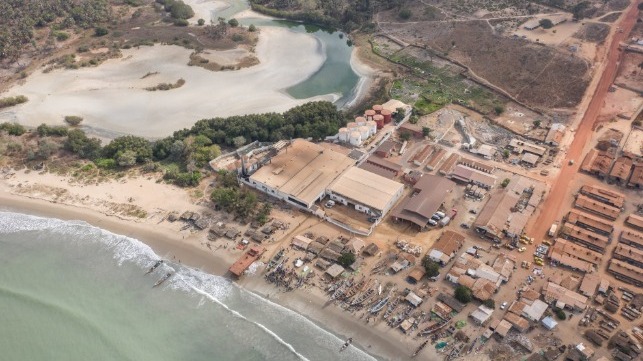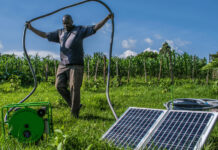By: James Fallah-Williams
Freetown, Sierra Leone: The Government of Sierra Leone’s advanced plan to build a $55m Chinese-funded fishmeal processing factory on Black Johnson estuary in Freetown will deliver a catastrophic blow to the quest for national food security, devastate pristine fish-breeding sites and destroy the already humbled artisanal fishing communities along the Sierra Leone coast.
The project is part of China’s global Belt and Road Initiative, which was unveiled by Xi Jinping in Kazakhstan in 2013 “To construct a unified large market and make full use of both international and domestic markets, through cultural exchange and integration, to enhance mutual understanding and trust of member nations, resulting in an innovative pattern of capital inflows, talent pools, and technology databases”.
If you walk along the shores of Black Johnson, you are greeted by a vast and beautiful expanse of calm and clean waters in a pristine setting. Black Johnson sits beneath the peninsula overlooking the Atlantic Ocean and holds some of the most delicate ecosystems in West Africa. A plethora of fish species come to spawn here in Black Johnson’s estuaries and ecotones.
A small, uninhabited island just off Black Johnson is called Barracuda Island by locals. It is no ordinary place; it is home to the prestigious barracuda, a ray-finned fish known for its fearsome looks and, of course, its taste. Along the beaches here are egg-laying homes of the endangered species. the green turtle. The rain forest hills overlooking the Atlantic Ocean hold a variety of majestic animal species, including green monkeys, slow loris, porcupines, pangolins, and Gambian pouched rats.
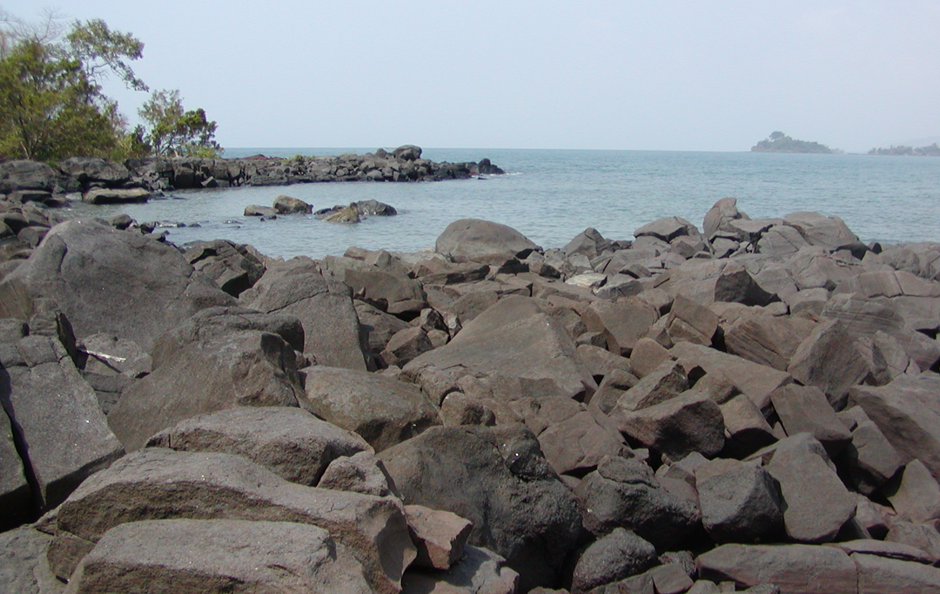 The peninsular forests are also home to a large collection of bird species, including the beautiful and rare rock fowl (Picathartes), the noisy plantain-eaters, wood doves, and the endangered Gola malimbe – the list is enviably long! Freetown and Greater Freetown surroundings are a truly tropical rain forest in the peninsula – you can stand anywhere in Black Johnson and take photographs of an impressive collection of tropical birds. To sell this place for $55m is a heinous act.
The peninsular forests are also home to a large collection of bird species, including the beautiful and rare rock fowl (Picathartes), the noisy plantain-eaters, wood doves, and the endangered Gola malimbe – the list is enviably long! Freetown and Greater Freetown surroundings are a truly tropical rain forest in the peninsula – you can stand anywhere in Black Johnson and take photographs of an impressive collection of tropical birds. To sell this place for $55m is a heinous act.
When the Sierra Leone government planned to seize the land from the local community in the Black Johnson area, it imposed an order forbidding land sales by landowners and stating that land documents would not be signed by the Ministry of Lands until further notice.
Since last year, dozens of private land ownership transfer applications have languished in the ministry. It was under this guise that the government took hundreds of acres of land and allocated them to the Chinese company building the fishmeal factory.
I was told by a security guard that it was also under this pretense that it is alleged the president’s wife acquired a large piece of land in the Black Johnson area.
The proposed fishmeal factory (‘fish harbor’, as the government would like to call it) is a multi-faceted project:
One, it will harvest high-value fish such as tuna, barracuda, the vulnerable snapper fish, lobsters, crabs, etc and will package them and send them to China.
Secondly,‘undesirable’ fish such as bonga, sardine, mackerel among others. will be turned into fishmeal for the Chinese fish farm market. What this means is that national food security will be in great jeopardy as 80% of the Sierra Leone population get their protein from fish.
Before the fishmeal factory project came to light, large and highly sophisticated Chinese fishing vessels floated imposingly on the calm waters along Freetown, many of them using pair trawling and drag-netting techniques. Between Ferry Junction in Freetown and Tagrin in Lungi, I counted seven large Chinese fishing vessels basking in the waters within an area of 1.5 nautical miles. It was an eye-opening spectacle.
Local, artisanal fishermen have been chased out of water by people with guns on these vessels. Many young families along the peninsular coast are now unemployed and homeless, which is one of the key factors in overcrowded city areas and pilfering, and is a trigger for pre- and post-election violence. The sight of large groups of young people selling anything from a couple of phone chargers to four or five used t-shirts is common. Pick pocketing and theft have become extremely common in Freetown.
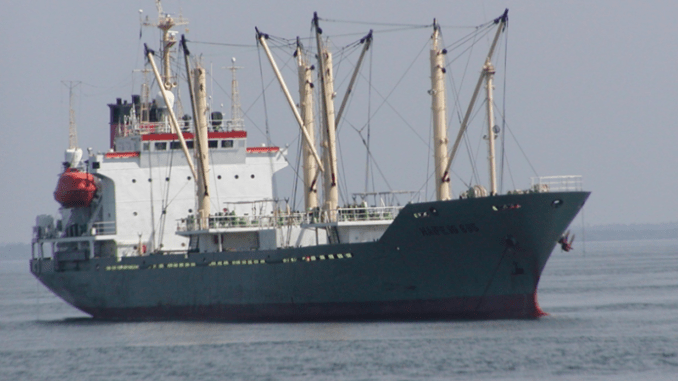 A few days ago, a minister’s phone was stolen. He used his power to command the Lumley police to use tear gas to disperse hundreds of petty traders along the streets at Regent Road junction, accusing them of criminality. When I rushed down to investigate, a female petty trader, holding her small tray of fried chicken drumsticks, wings and nuggets spoke with anxiety mixed with excitement: ‘We go fet this all kind way!’ (We will fight this in every way!) as police officers ran after them. She picked up her tray of fried chicken and ran down a dark alleyway, where underage prostitutes amass in droves after dusk.
A few days ago, a minister’s phone was stolen. He used his power to command the Lumley police to use tear gas to disperse hundreds of petty traders along the streets at Regent Road junction, accusing them of criminality. When I rushed down to investigate, a female petty trader, holding her small tray of fried chicken drumsticks, wings and nuggets spoke with anxiety mixed with excitement: ‘We go fet this all kind way!’ (We will fight this in every way!) as police officers ran after them. She picked up her tray of fried chicken and ran down a dark alleyway, where underage prostitutes amass in droves after dusk.
The underaged prostitutes, motorbike taxi and Okada (motorbike) riders are her main customers. A police officer with a long rattan whip ran after a group of motorbike riders, one of whom quickly planted a fried chicken drumstick between his teeth and dashed off on his motorbike in the melee.
Similar projects by the Chinese have left Senegalese fishing industries in absolute crisis. The recent fatal street protests and civil unrest in Senegalese cities have their origin in the destructive fishing activities that have forced young people into joblessness and pervasive and pernicious hunger.
In Gungur in The Gambia, a place I know very well has had its estuaries polluted by dangerous chemicals released into the sea by three fishmeal factories operated by the Chinese. According to the U.N. Agency, Food and Agricultural Organization (FAO), three quarters of West Africa’s fisheries are depleted.
The effect of the fishmeal factories in the Gambia is irreversibly damaging the tourism industry too. I used to ride a mountain bike from Brikama to Gungur beach and back. Golden Lead, which is one of the three factories operating in the town, was sued by residents. Small, local tourist restaurants and hotels no longer have customers.
Collateral catches such as turtles, dolphins, among others caught by the factories fishing vessels are thrown into the sea and end up on tourist beaches in The Gambia. The reeking, rotting fish and the dead birds are shaking the Gambia’s tourism industry, which is the main income earner for the country. Like in Sierra Leone, the decision to award licenses to fishmeal factories was taken out of some deeply venal motive by only one man, the president, with total disregard for the effect this will have on the country.
If the fishmeal factory is allowed to go ahead in Sierra Leone, it will be the end of the country’s tourism industry aspirations. An insider has told me it is alleged that Memunatu Pratt, the tourism minister, is opposed to the project, but that she has been coerced and muzzled by the president.
The project was awarded under corrupt circumstances and was designed to benefit only a handful of people in the administration. Steve Trent, CEO and founder of the Environmental Justice Foundation, has said: “The deal is also deeply opaque, raising profound concerns about who will benefit and what the negative impacts will be. It seems clear that no social or environmental impact assessments were carried out, nor were there any consultations with local communities. No data from any study of this kind has been published.”
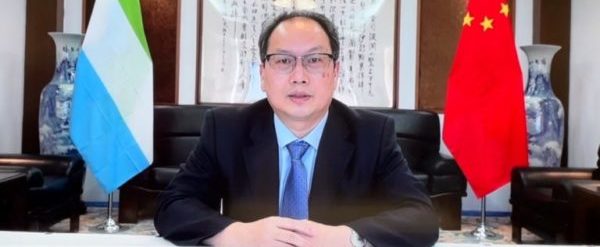 When The Sierra Leone Telegraph raised the fishmeal case, Du Zijun, the Chinese embassy’s economic and commercial counselor in Sierra Leone (Photo above), accused foreign media of publishing “false reports on the China-aid fish harbor project for Sierra Leone on the basis of some unfounded social media news”.
When The Sierra Leone Telegraph raised the fishmeal case, Du Zijun, the Chinese embassy’s economic and commercial counselor in Sierra Leone (Photo above), accused foreign media of publishing “false reports on the China-aid fish harbor project for Sierra Leone on the basis of some unfounded social media news”.
Zijun described the project as “It is an assistance project that the government of Sierra Leone has requested the Chinese government to help construct, for the purpose of promoting the development of Sierra Leone’s own fishery sector”.
Zijun’s description is a classic fairy tale, pie-in-the-sky fantasy stuff; it is the same message that was preached to the Senegalese and the Gambians, and all have ended up being short-changed, with their local populations suffering immense food deprivation, unemployment and destroyed livelihoods.
The mass migration of young people from West Africa – especially from Senegal and The Gambia – to Europe through the Mediterranean is of people from fishing villages affected by degrading food insecurities and unemployment.
The Sierra Leone government has shamelessly gone to great lengths to tell the country that the fishmeal project will create “thousands” of jobs. This is utterly delusional and nonsensical, a load of claptrap; the whole factory process is extremely mechanized. For example, Golden Lead in The Gambia has only about fifteen people working on the factory floor at any one time. JXYG, another Chinese fishmeal factory in The Gambia, employs only thirty-six people.
Alarmingly, the Sierra Leone Fisheries Minister, Kowa-Jalloh, said the project has a waste-management component of the “recycling of marine and other wastes into useful products”. What she is basically telling us is that when the high-value fish is packaged and shipped, undesirable fish will be turned into fishmeal (this is the ‘useful product’ stuff she is talking about) and sent to China.
The ‘waste-management component’ she is talking about involves bonga fish, sardines, mackerels, etc – which is what ordinary Sierra Leoneans eat on a daily basis to survive. If she is going to turn these into fishmeal and ship them to China, what is the alternative for eighty per cent of the Sierra Leone population? This is typical blind credulity at its best on the part of the minister. The social, economic, and environmental consequences of her fish harbor/fishmeal project will further demoralize this desperately hungry country. I have never seen a government that is as clueless and naïve (if not deliberately warped) as this one.
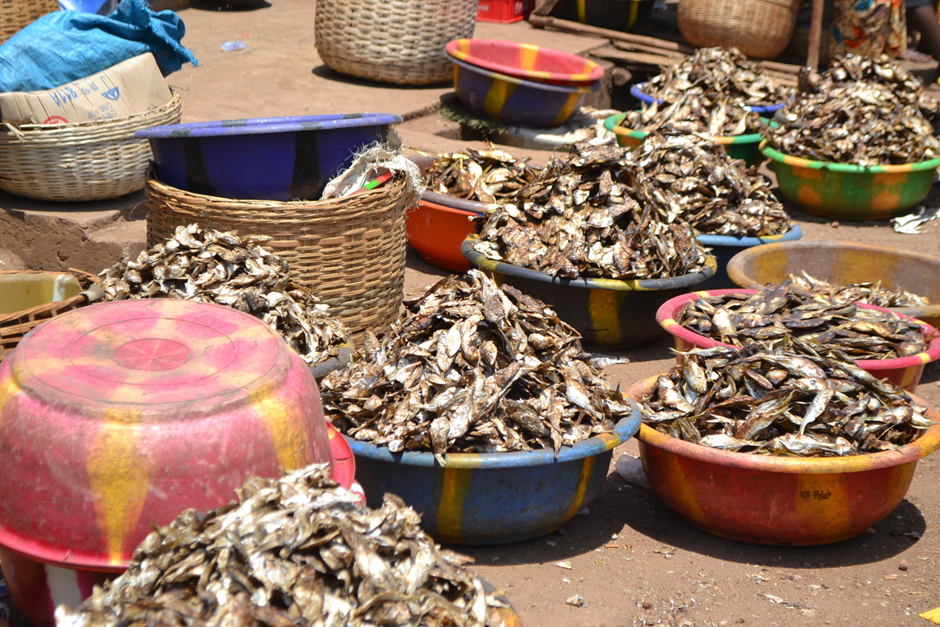 Photo: Small fish like these, dried and sold to poor people, will be turned into fishmeal.
Photo: Small fish like these, dried and sold to poor people, will be turned into fishmeal.
Last week, we concluded two major focus group workshops in Freetown with a UK university working to rehabilitate young people affected by displacement in Sierra Leone. Ninety-four per cent of the young people between the ages of seventeen and twenty-six involved in the study admitted to having mental health problems.
This is driven by the harsh economic challenges they and their families are now facing. Many travel more than ten miles a day to come to city centers to sell items between 7am and 10pm. Sixty per cent of the young people are school dropouts who are selling on the streets to earn money to help them go back to school. Their daily profit margin is about 75p ($1.06).
Families who have been chased from their traditional fishing villages along the coast are now living in overcrowded favelas such as Susan’s Bay and sending their young children out as prostitutes on the streets of Freetown. In March this year, Susan’s Bay was swept away in an inferno.
I have been told that a sudden unease has developed between the administration and the Chinese funders about threats of sabotage and the financial implications. Black Johnson and No2 River areas are at the heart of the most dangerous and challenging policing district in the whole of Sierra Leone. Some of those who have settled in the peninsular areas, and whose livelihoods will be affected, are ex-combatants who are easily dragged into land disputes.
This current administration has completely lost its way, and it now seems like the most inept yet this country has had. Seeing its deficient administrators herding in their offices is like watching a flock of stricken ducks hiding away from a thunderstorm. I feel very much for the country’s young people.
This article was first published on Sierra Leone Telegraph

